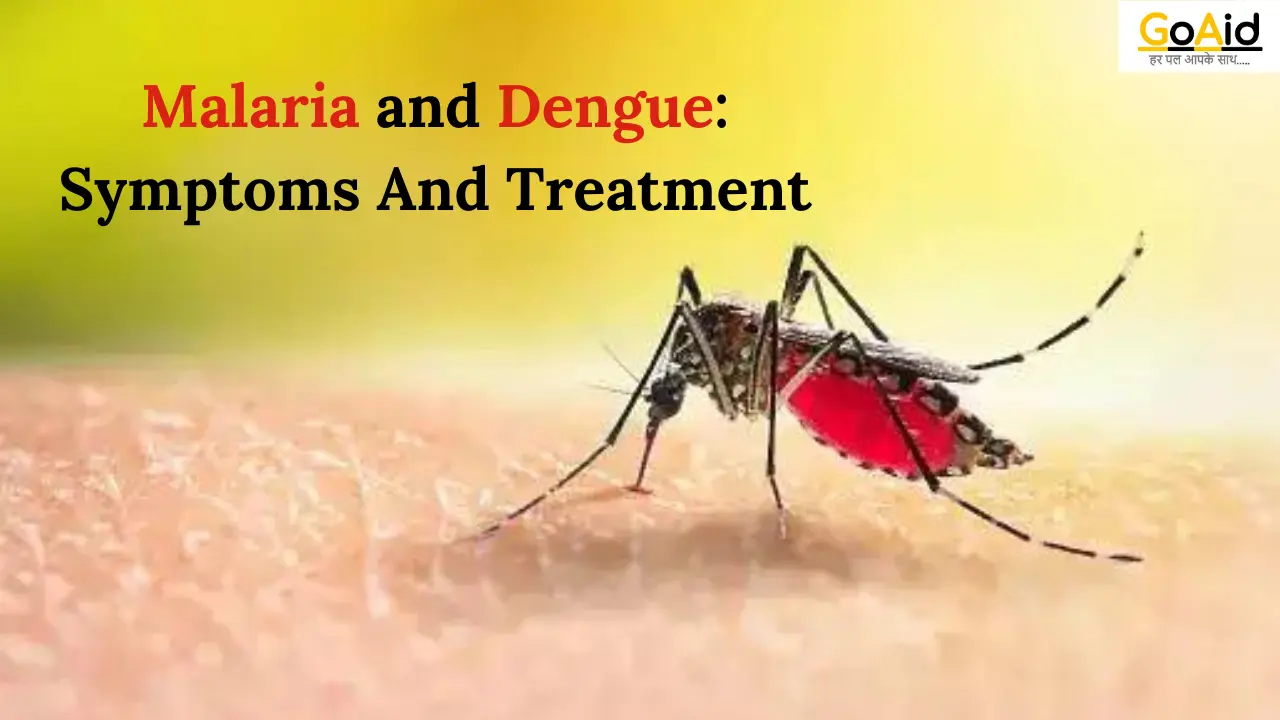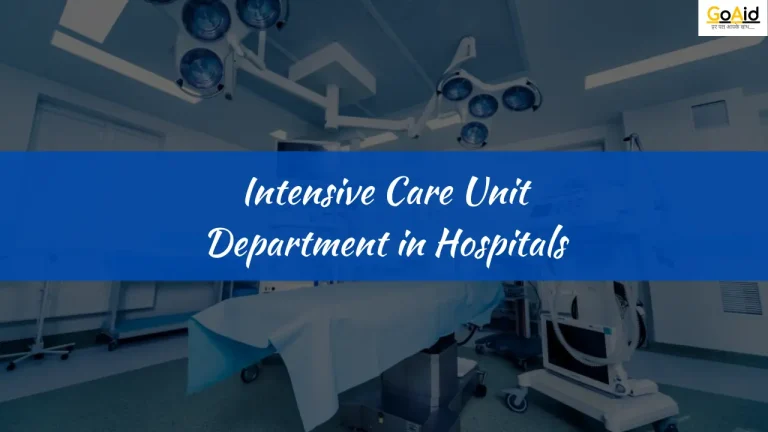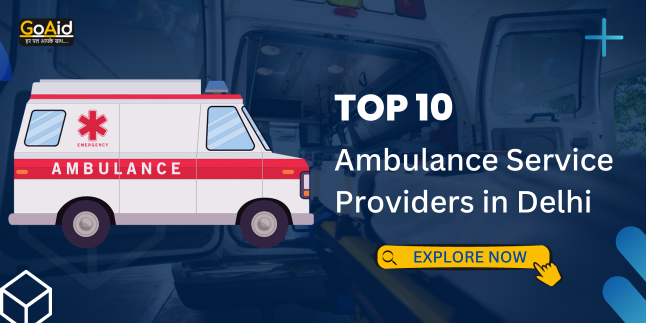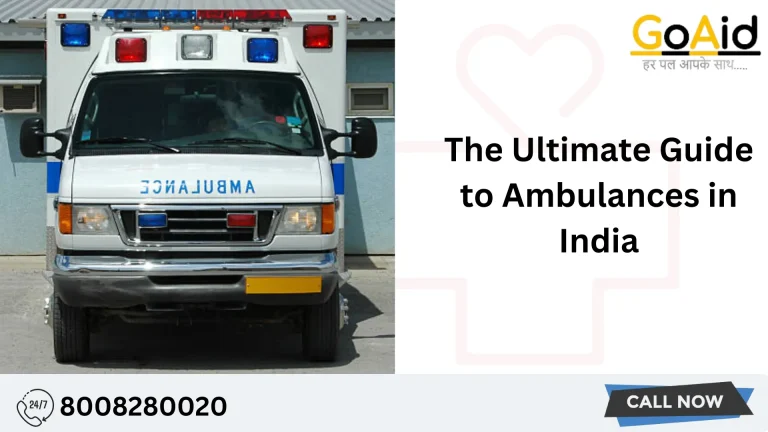In India, right now the monsoon is about to enter through many gates of the environment. This is why, itŌĆÖs possible that we can see a sharp rise in the cases of malaria and dengue. In India and many parts of the world, there are a lot of people who donŌĆÖt know the difference between malaria and dengue.
This is why, in this comprehensive blog, we have added full details about Dengue and Malaria, such as What are Dengue and Malaria, What are their Symptoms, their causes, treatment, and prevention tips for individuals. If you are also looking to know the full details about Dengue and Malaria, then in this blog, youŌĆÖll get comprehensive details about both.
Are you excited to know all the details about Malaria and Dengue? Read the blog to the end.
So, letŌĆÖs start-
Complete Details about Malaria and Dengue
What is Malaria?
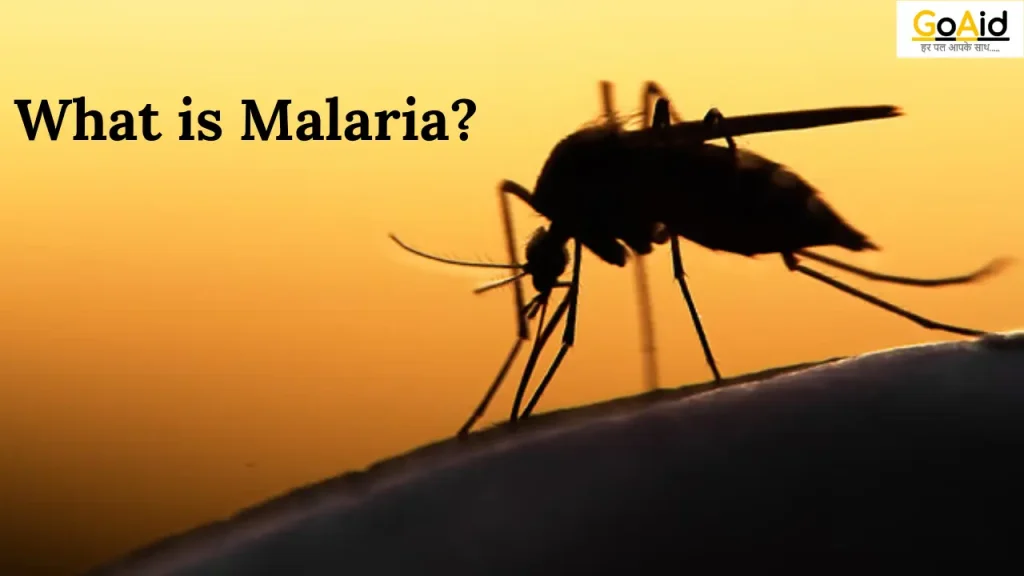
Malaria is a life-threatening disease caused by Plasmodium parasites, which are transmitted to humans through the bites of infected Anopheles mosquitoes. It is widespread in tropical and subtropical regions, especially in sub-Saharan Africa. Symptoms of malaria include fever, chills, headache, nausea, vomiting, muscle pain, and fatigue.
Severe cases can cause complications like anemia, cerebral malaria, and organ failure. Malaria is preventable and treatable; prevention includes using insecticide-treated mosquito nets and antimalarial medications, while treatment involves antimalarial drugs. Early diagnosis and prompt treatment are crucial for reducing mortality and preventing complications.
Read More: 7 Most Common Diseases in Summer | Symptoms, Causes, Treatment / Cure ŌĆō A Complete Guide
Symptoms of Malaria
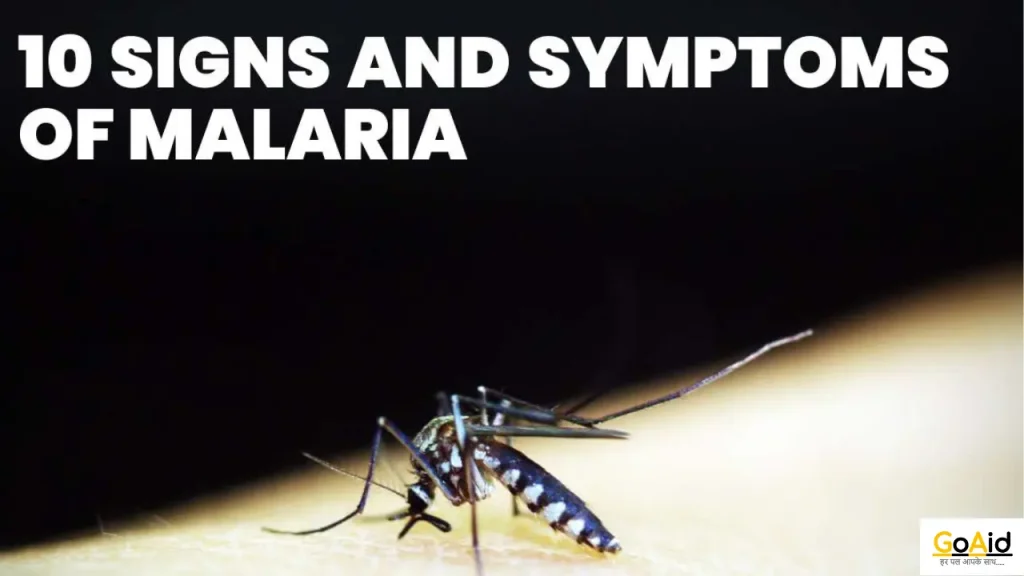
These are the major and most common symptoms of Malaria:
- Fever: In this symptom of Malaria, the person can feel intermittent fever with chills and sweating, often in a cyclic pattern every 48 to 72 hours.
- Chills: In this symptom of Malaria, the patient can feel intense shivering and cold sweats accompanying the fever cycles.
- Headache: In this symptom of Malaria, Persistent, severe headaches are common in malaria.
- Nausea and Vomiting: In this symptom of Malaria, these symptoms can lead to dehydration and electrolyte imbalances.
- Muscle Pain: In this symptom of Malaria, Myalgia, or muscle pain, often accompanies the fever.
- Fatigue: In this symptom of Malaria, Profound tiredness and general weakness that can last for weeks.
- Sweats: In this symptom of Malaria, excessive sweating often follows the fever and chills.
- Anemia: In this symptom of Malaria, Destruction of red blood cells by the parasite can lead to anemia, causing pallor and weakness.
- Jaundice: In this symptom of Malaria, Yellowing of the skin and eyes due to liver involvement and hemolysis.
- Abdominal Pain: In this symptom of Malaria, Discomfort or pain in the abdomen can be a sign of severe malaria affecting internal organs.
Also Read: Introduction to the Sitting Positions You Should Know
Causes of Malaria
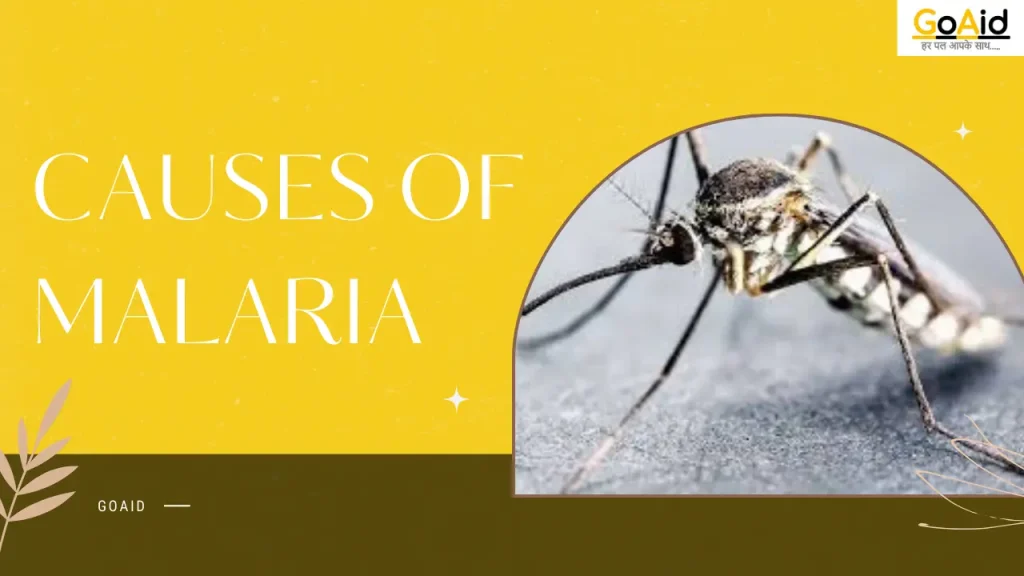
These are the main Causes of Malaria:
- Plasmodium Parasites: Malaria is caused by Plasmodium parasites, with five species infecting humans: P. falciparum, P. vivax, P. ovale, P. malariae, and P. knowlesi. P. falciparum is the most deadly.
- Anopheles Mosquitoes: In this cause of Malaria, is transmitted through the bites of infected female Anopheles mosquitoes, which typically bite during the night.
- Human-Mosquito-Human Cycle: In this cause of Malaria, the mosquito becomes infected by biting a person with malaria. The parasites mature in the mosquito, which then transmits them to another human during a subsequent bite.
- Climate: In this cause of Malaria, Malaria thrives in warm climates with high humidity, typical of tropical and subtropical regions.
- Water Bodies: In this cause of Malaria, Stagnant water sources, such as ponds, marshes, and rice fields, provide breeding grounds for Anopheles mosquitoes.
- Travel: Traveling to or living in malaria-endemic regions increases the risk of contracting the disease.
- Poor Socioeconomic Conditions: In this cause of Malaria, the Lack of access to healthcare, insecticide-treated bed nets, and antimalarial medications contributes to higher malaria transmission.
- Drug Resistance: In this cause of Malaria, the development of resistance to antimalarial drugs, particularly in P. falciparum, poses a significant challenge to malaria control.
- Lack of Immunity: In this cause of Malaria, People in non-endemic areas or young children in endemic regions may lack immunity, making them more susceptible to infection.
- Genetic Factors: In this cause of Malaria, Certain genetic traits, such as sickle cell trait, can affect susceptibility to malaria and its severity.
Treatment of Malaria
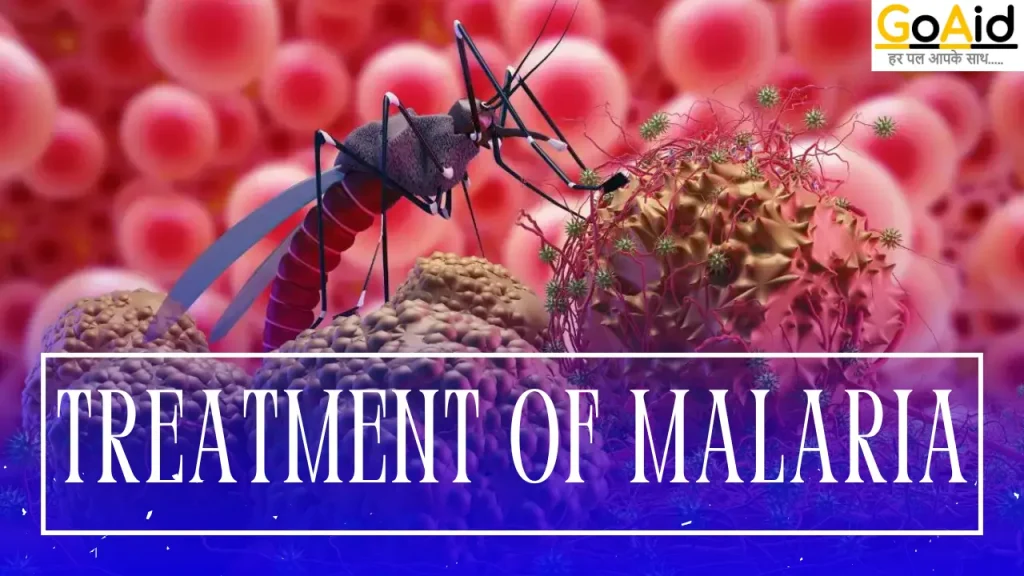
These are the best treatments for Malaria that can be helpful to handle Malaria and Throw the Malaria Out.
- Antimalarial Medications: In this Treatment of Malaria, the choice of medication depends on the Plasmodium species, the severity of symptoms, and the patient’s age and pregnancy status. Common drugs include chloroquine, artemisinin-based combination therapies (ACTs), and quinine.
- Hospitalization: In this Treatment of Malaria, Severe malaria cases, especially those involving P. falciparum, may require hospitalization for intravenous medications and supportive care.
- Supportive Care: In this Treatment of Malaria, this Includes fever management, hydration, and blood transfusions if necessary.
- Monitoring: In this Treatment of Malaria, the Regular monitoring of vital signs, blood glucose levels, and organ function.
- Symptom Management: This Treatment of Malaria, Addresses specific symptoms such as anemia, seizures, and jaundice.
- Nutritional Support: This Treatment of Malaria, Ensures proper nutrition to support recovery.
- Follow-Up: In this Treatment of Malaria, the Post-treatment follow-up is to ensure the infection is completely cleared and to monitor for potential relapses, especially in P. vivax and P. ovale infections.
- Prophylactic Treatment: In this Treatment of Malaria, In areas with drug-resistant malaria, prophylactic treatments may be administered to prevent recurrence.
- Combination Therapy: In this Treatment of Malaria, the use of combination therapy to reduce the risk of resistance and increase treatment efficacy.
- Pregnancy Considerations: In this Treatment of Malaria, Special treatment considerations can be used for pregnant women to avoid harm to the fetus.
Also Read: What are the Diseases Caused in Rainy Season
Prevention Tips for Malaria
A person can use these tips to protect themselves from Malaria. These are the best Prevention Tips for Malaria:
- Insecticide-Treated Nets (ITNs): In this Prevention tip of Malaria, Sleeping under ITNs significantly reduces the risk of mosquito bites.
- Indoor Residual Spraying (IRS): In this Prevention tip of Malaria, Spray insecticides on indoor walls to kill mosquitoes that rest there.
- Antimalarial Prophylaxis: In this Prevention tip of Malaria, Taking antimalarial drugs as a preventive measure for travelers and high-risk groups.
- Mosquito Control: In this Prevention tip for Malaria, you should eliminate mosquito breeding sites by draining stagnant water and using larvicides.
- Protective Clothing: In this Prevention tip for Malaria, you can wear long-sleeved clothing and pants, especially during peak mosquito activity times.
- Insect Repellents: In this Prevention tip of Malaria, you can use repellents containing DEET, picaridin, or other effective ingredients.
- Screening: In this Prevention tip of Malaria, you can install window and door screens to keep mosquitoes out of living spaces.
- Public Health Campaigns: In this Prevention tip of Malaria, Increase awareness and education on malaria prevention methods.
- Vaccination: In this Prevention tip of Malaria, The RTS, S/AS01 malaria vaccine is available in some regions for young children to provide partial protection.
- Early Diagnosis and Treatment: In this Prevention tip of Malaria, Prompt diagnosis and treatment of malaria cases to reduce transmission and prevent complications.
Home Remedies for Malaria
These are the most common and most trusted Home Remedies for Malaria:
- Cinnamon: Boil cinnamon sticks in water, add a dash of honey and a pinch of pepper. Drink this daily to help reduce symptoms.
- Ginger: Prepare ginger tea by boiling ginger slices in water. Ginger helps reduce nausea and boost immunity.
- Citrus Fruits: Consuming citrus fruits like oranges and lemons can help boost the immune system.
- Holy Basil (Tulsi): Drink basil tea or chew fresh basil leaves to help reduce fever and boost immunity.
- Grapefruit: Grapefruit contains quinine-like substances, which can help fight malaria. Eat fresh grapefruit or drink its juice.
- Apple Cider Vinegar: Soak a cloth in apple cider vinegar and place it on the forehead to reduce fever.
- Turmeric: Mix turmeric powder in warm milk and drink it daily. Turmeric has anti-inflammatory and antioxidant properties.
- Fenugreek Seeds: Soak fenugreek seeds overnight and drink the water in the morning to boost immunity.
- Mustard Oil and Aloe Vera: Mix mustard oil with aloe vera gel and apply it to the body to reduce body pain.
- Neem: Boil neem leaves in water and drink the decoction to help reduce malaria symptoms.
Read More: Introduction to how to relieve back pain during Pregnancy
What is Dengue?
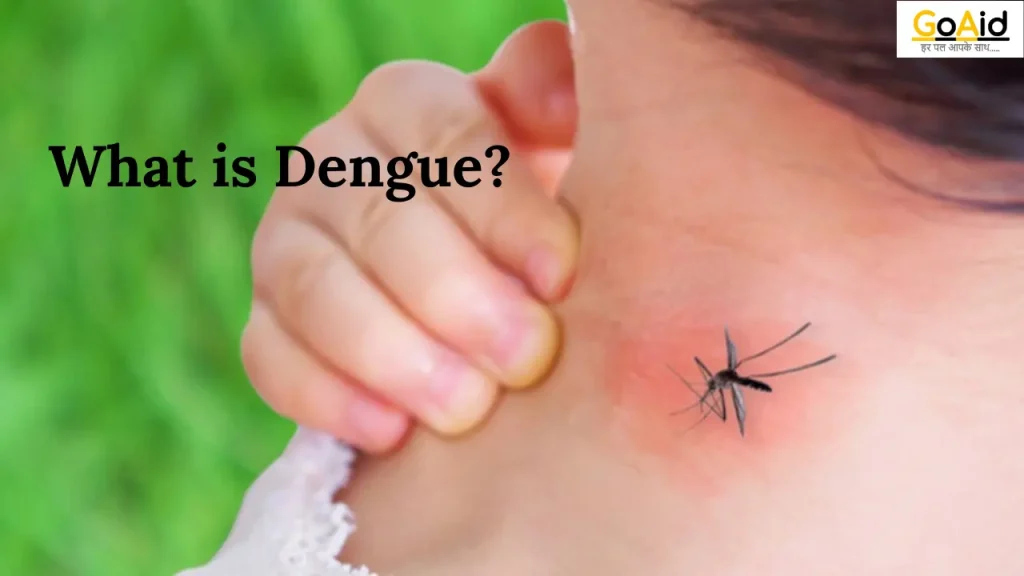
Dengue is a viral infection caused by the dengue virus, transmitted primarily by Aedes mosquitoes, particularly Aedes aegypti. It is prevalent in tropical and subtropical regions around the world. Symptoms of dengue include high fever, severe headache, pain behind the eyes, joint and muscle pain, rash, and mild bleeding.
In severe cases, it can lead to dengue hemorrhagic fever or dengue shock syndrome, which can be life-threatening. There is no specific antiviral treatment for dengue, and management mainly involves supportive care to relieve symptoms and maintain hydration.
Symptoms of Dengue
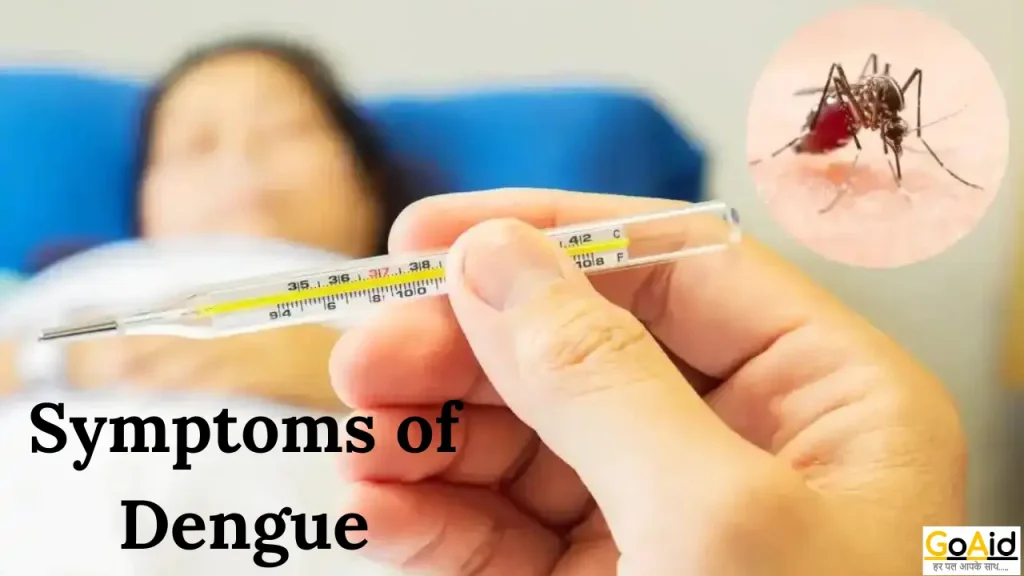
These are the major and most common symptoms of Dengue:
- High Fever: In this symptom of Dengue, the patient can feel a sudden, high fever reaching up to 104┬░F (40┬░C) is often the first sign of dengue.
- Severe Headache: In this symptom of Dengue, Intense pain in the forehead is a common symptom.
- Pain Behind the Eyes: In this symptom of Dengue, Retro-orbital pain, or pain behind the eyes, is a distinguishing symptom.
- Joint and Muscle Pain: In this symptom of Dengue, Severe muscle pain (myalgia) and joint pain (arthralgia), sometimes referred to as “dengue breakbone fever.”
- Rash: In this symptom of Dengue, A red rash can appear a few days after the fever starts, sometimes covering most of the body.
- Nausea and Vomiting: In this symptom of Dengue, gastrointestinal symptoms can be persistent and lead to dehydration.
- Mild Bleeding: In this symptom of Dengue, Symptoms like nosebleeds, gum bleeding, or easy bruising can occur due to low platelet count.
- Fatigue: In this symptom of Dengue, Extreme tiredness and weakness can persist for weeks after the initial infection.
- Swollen Glands: In this symptom of Dengue, Lymphadenopathy, or swollen lymph nodes, can occur.
- Loss of Appetite: In this symptom of Dengue, Patients may experience a significant decrease in their desire to eat.
Read More: Some Important Topics
Causes of Dengue
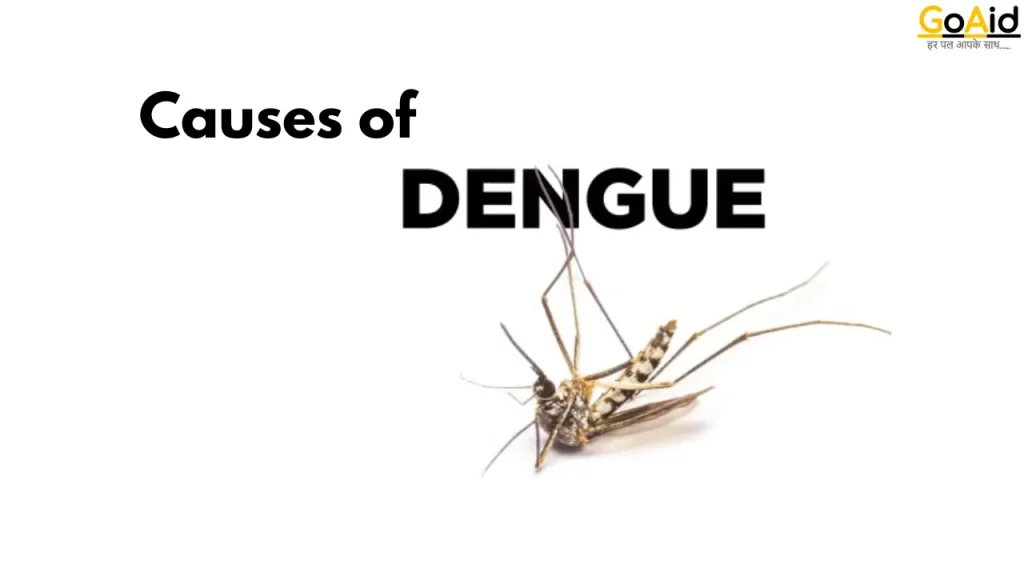
These are the main causes of Dengue:
- Dengue Virus: In this cause of Dengue, Dengue is caused by four closely related viruses (DENV-1, DENV-2, DENV-3, and DENV-4). Infection with one serotype provides lifelong immunity to that serotype but not to the others.
- Aedes Mosquitoes: In this cause of Dengue, the primary vectors for dengue transmission are Aedes aegypti and Aedes albopictus mosquitoes. They are day-biters, most active during early morning and late afternoon.
- Human-Mosquito-Human Cycle: In the case of Dengue, when an Aedes mosquito bites an infected person, it becomes a carrier of the virus. The mosquito then transmits the virus to other humans through bites.
- Urbanization: In this cause of Dengue, rapid urbanization without adequate infrastructure can lead to water stagnation, providing breeding grounds for mosquitoes.
- Climate: In this cause of Dengue, Tropical and subtropical climates with warm temperatures and high humidity are ideal for mosquito breeding.
- Travel: In this cause of Dengue, International travel to endemic areas increases the risk of contracting and spreading the virus.
- Population Density: In the case of Dengue, high population densities facilitate the spread of the virus, as more people in close proximity increase the chances of mosquito bites.
- Lack of Mosquito Control: In this cause of Dengue, Insufficient vector control measures and public health interventions contribute to the persistence and spread of dengue.
- Weak Immune System: In this cause of Dengue, Individuals with weakened immune systems are more susceptible to severe dengue.
- Secondary Infection: In this cause of Dengue, subsequent infections with different serotypes can lead to more severe forms of the disease, such as dengue hemorrhagic fever.
Treatment of Dengue
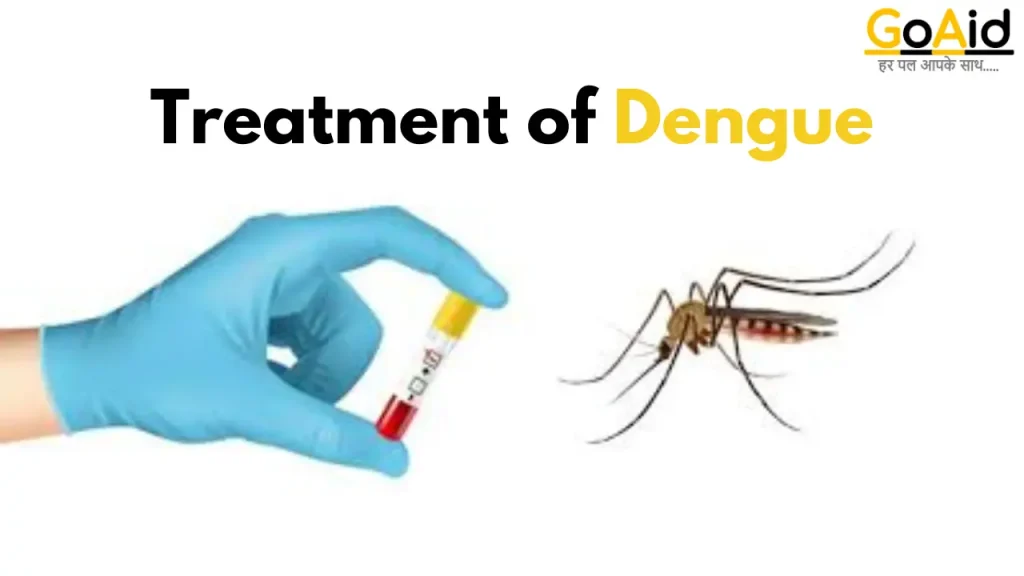
These are the best Treatment of Dengue:
- Supportive Care: In this treatment of Dengue, There is no specific antiviral treatment for dengue. Supportive care includes hydration, pain relief, and fever management.
- Fluid Management: In this treatment of Dengue, Oral rehydration salts (ORS) and intravenous fluids are used to maintain fluid balance and prevent dehydration.
- Pain Relief: In this treatment of Dengue, Paracetamol (acetaminophen) is recommended to reduce fever and alleviate pain. Avoid aspirin and nonsteroidal anti-inflammatory drugs (NSAIDs) due to the risk of bleeding.
- Monitoring: In this treatment of Dengue, Patients, especially those with severe symptoms, should be closely monitored for signs of dengue hemorrhagic fever or dengue shock syndrome.
- Hospitalization: In this treatment of Dengue, Severe cases may require hospitalization for intensive supportive care, including blood transfusions if necessary.
- Rest: Patients should get plenty of rest to aid in recovery.
- Nutritional Support: In this treatment of Dengue, Eating a balanced diet and staying well-nourished can help in recovery.
- Avoidance of Further Mosquito Bites: In this treatment of Dengue, Patients should use mosquito nets and repellents to prevent further mosquito bites.
- Symptom Management: In this treatment of Dengue, Addressing specific symptoms like nausea, vomiting, and rash can help improve comfort.
- Education and Awareness: In this treatment of Dengue, Patients and caregivers should be educated about the signs of severe dengue and when to seek medical attention.
Prevention Tips for Dengue
You can use these Prevention tips for Dengue because these are the most trusted Dengue Prevention Tips
- Mosquito Control: In this Prevention tip for Dengue, you can eliminate standing water where mosquitoes breed, such as in flower pots, old tires, and gutters.
- Insect Repellents: In this Prevention tip for Dengue, you can use repellents containing DEET, picaridin, or oil of lemon eucalyptus on exposed skin.
- Protective Clothing: In this Prevention tip for Dengue, you can wear long-sleeved shirts, long pants, socks, and shoes to minimize skin exposure.
- Mosquito Nets: In this Prevention tip for Dengue, you should use bed nets, especially in areas where mosquito activity is high.
- Screens and Barriers: In this Prevention tip for Dengue, you should install window and door screens to keep mosquitoes out of homes.
- Community Efforts: In this Prevention tip for Dengue, you should participate in community clean-up campaigns and vector control programs.
- Public Education: In this Prevention tip for Dengue, Increase awareness about dengue prevention methods through education campaigns.
- Vaccination: In this Prevention tip for Dengue, the Dengvaxia vaccine is available in some countries for individuals who have had previous dengue infection.
- Travel Precautions: In this Prevention tip for Dengue, travelers to dengue-endemic areas should take precautions to avoid mosquito bites.
- Surveillance and Reporting: In this Prevention tip for Dengue, you should report dengue cases to health authorities for effective tracking and response.
Home Remedies for Dengue
These are the most common practices or remedies that performed at home in India:
- Papaya Leaf Juice: Papaya leaves are believed to increase platelet count. Extract the juice and consume it twice daily.
- Hydration: Drink plenty of fluids like water, coconut water, and electrolyte solutions to stay hydrated and reduce symptoms.
- Neem Leaves: Neem has antiviral properties. Boil neem leaves in water and drink the decoction.
- Basil (Tulsi) Tea: Basil leaves help boost immunity. Prepare tea with basil leaves and consume it twice a day.
- Fenugreek (Methi) Seeds: Fenugreek seeds help reduce fever and pain. Soak the seeds in water overnight and drink the water.
- Orange Juice: Rich in vitamins and antioxidants, orange juice helps boost the immune system and recovery.
- Barley Grass: Barley grass juice can help increase platelet count and detoxify the body.
- Pomegranate Juice: Pomegranate juice is beneficial for increasing blood platelet count and providing energy.
- Herbal Tea: Drink herbal teas made from ingredients like ginger, peppermint, and chamomile to soothe the body.
- Giloy (Tinospora Cordifolia): Giloy is known for its immune-boosting properties. Drink giloy juice or decoction to aid recovery.
Difference between Malaria and Dengue
These are the major differences between Dengue and Malaria:
| Feature | Dengue | Malaria |
| Cause | Dengue virus (DENV-1, DENV-2, DENV-3, DENV-4) | Plasmodium parasites (P. falciparum, P. vivax, P. ovale, P. malaria, P. knowlesi) |
| Vector | Aedes mosquitoes (Aedes aegypti, Aedes albopictus) | Anopheles mosquitoes |
| Transmission Time | Daytime | Nighttime |
| Geographic Regions | Tropical and subtropical regions | Tropical and subtropical regions |
| Symptoms Onset | Sudden high fever, severe headache, joint and muscle pain, rash, pain behind the eyes | Cyclic fever with chills and sweats, headache, nausea, vomiting, muscle pain, fatigue |
| Rash | Common | Rare |
| Platelet Count | Often decreases (thrombocytopenia) | Usually not affected |
| Fever Pattern | High fever, often biphasic | Intermittent fever with chills and sweats |
| Complications | Dengue hemorrhagic fever, dengue shock syndrome | Anemia, cerebral malaria, organ failure |
| Diagnosis | Blood tests (NS1 antigen, PCR, antibody tests) | Blood smear, rapid diagnostic tests, PCR |
| Treatment | Supportive care, hydration, pain relief | Antimalarial medications, supportive care |
| Prevention | Mosquito control, insect repellents, vaccination (Dengvaxia) | Insecticide-treated nets, prophylactic antimalarials, indoor residual spraying |
Conclusion
In Conclusion, the Dengue and malaria are serious mosquito-borne diseases prevalent in tropical and subtropical regions. While dengue is caused by the dengue virus transmitted by Aedes mosquitoes, malaria is caused by Plasmodium parasites transmitted by Anopheles mosquitoes. Both diseases have distinct symptoms, treatments, and prevention strategies.
Effective mosquito control, early diagnosis, and appropriate medical care are crucial for managing these illnesses. We have provided you with all the essential details about dengue and malaria. If you have any questions, please ask in the comment box below.
Book Ambulance: GoAid Ambulance Service
FAQs related to Complete Details Malaria and Dengue
The primary symptoms of dengue include a sudden onset of high fever, severe headache, pain behind the eyes, joint and muscle pain (often referred to as “breakbone fever”), a characteristic rash, and mild bleeding manifestations such as nosebleeds, gum bleeding, or easy bruising. These symptoms typically appear 4-10 days after being bitten by an infected mosquito.
Dengue is transmitted through the bites of infected female Aedes mosquitoes, primarily Aedes aegypti and Aedes albopictus. These mosquitoes become infected when they bite a person already carrying the dengue virus and subsequently transmit the virus to other humans through their bites. These mosquitoes are day-biters, most active during early morning and late afternoon.
Yes, dengue can be fatal, especially if it progresses to severe forms such as dengue hemorrhagic fever or dengue shock syndrome. These severe manifestations can lead to critical complications like plasma leakage, fluid accumulation, severe bleeding, and organ impairment. Prompt medical intervention and supportive care are crucial in preventing fatalities.
Yes, the Dengvaxia vaccine is available in some countries. It is recommended for individuals who have previously been infected with dengue, as it can provide immunity against future infections. However, it is not suitable for those who have never had dengue before, as it may increase the risk of severe dengue upon subsequent infection.
If you suspect you have dengue, seek medical attention immediately. Early diagnosis and proper management are essential. Rest, stay hydrated by drinking plenty of fluids, and use paracetamol for pain and fever relief. Avoid using nonsteroidal anti-inflammatory drugs (NSAIDs) like aspirin or ibuprofen, as they can increase the risk of bleeding.
Preventing dengue involves several measures, including using mosquito repellents, wearing protective clothing such as long-sleeved shirts and pants, using mosquito nets while sleeping, and eliminating standing water around your home where mosquitoes can breed. Community efforts and public health interventions to reduce mosquito populations are also vital.
Mild cases of dengue can often be managed at home with supportive care. This includes staying well-hydrated, getting plenty of rest, and taking paracetamol to reduce fever and alleviate pain. However, it is important to monitor for any signs of severe dengue, such as persistent vomiting, abdominal pain, bleeding, or difficulty breathing, and seek immediate medical attention if they occur.
The incubation period for dengue, which is the time between being bitten by an infected mosquito and the onset of symptoms, typically ranges from 4 to 10 days. During this period, the virus multiplies within the body, eventually leading to the characteristic symptoms of the disease.
Yes, dengue can lead to serious complications, especially if it progresses to severe forms like dengue hemorrhagic fever or dengue shock syndrome. Complications include severe bleeding, organ failure, fluid accumulation in the chest and abdomen, and a drop in blood pressure leading to shock. These complications can be life-threatening and require immediate medical intervention.
Yes, a person can get dengue up to four times in their lifetime, as there are four different serotypes of the dengue virus (DENV-1, DENV-2, DENV-3, and DENV-4). Infection with one serotype provides lifelong immunity to that specific serotype but not to the others. Subsequent infections with different serotypes increase the risk of severe dengue
The main symptoms of malaria include intermittent fever with chills and sweats, severe headache, nausea, vomiting, muscle pain, fatigue, and general malaise. The fever typically follows a cyclic pattern, recurring every 48 to 72 hours, depending on the Plasmodium species causing the infection. Other symptoms may include anemia, jaundice, and in severe cases, neurological symptoms.
Malaria is transmitted through the bites of infected female Anopheles mosquitoes. When an infected mosquito bites a person, it injects Plasmodium parasites into the bloodstream. These parasites then travel to the liver, where they mature and multiply before re-entering the bloodstream to infect red blood cells. The transmission cycle continues when another mosquito bites an infected person and becomes a carrier of the parasites.
Malaria in humans is caused by five species of Plasmodium parasites: Plasmodium falciparum, P. vivax, P. ovale, P. malariae, and P. knowlesi. P. falciparum is the most deadly and prevalent in Africa, while P. vivax is more common in Asia and Latin America. P. ovale and P. malariae are less common, and P. knowlesi, originally found in monkeys, can cause malaria in humans in Southeast Asia.
Yes, malaria can be fatal, particularly infections caused by Plasmodium falciparum, which can lead to severe complications such as cerebral malaria, severe anemia, respiratory distress, organ failure, and death if not treated promptly. Rapid diagnosis and appropriate treatment are essential to prevent fatalities.
Yes, the RTS, S/AS01 (Mosquirix) malaria vaccine has been developed and is being used in some regions, particularly for young children in sub-Saharan Africa. The vaccine provides partial protection against Plasmodium falciparum, the most deadly species of the malaria parasite. However, it is not fully effective, and other preventive measures such as insecticide-treated nets and antimalarial medications are still necessary.
If you suspect you have malaria, seek medical attention immediately. Early diagnosis and treatment with appropriate antimalarial medications are crucial. Malaria can progress rapidly, and prompt treatment can prevent severe complications and reduce the risk of death. If you are in a malaria-endemic area, visit a healthcare facility for a diagnostic test and follow their treatment recommendations.
Preventing malaria involves multiple strategies, including using insecticide-treated bed nets (ITNs) to avoid mosquito bites while sleeping, taking antimalarial prophylactic medications if traveling to or living in malaria-endemic areas, using insect repellents on exposed skin, wearing long-sleeved clothing and pants, and implementing community-level mosquito control measures such as indoor residual spraying and eliminating standing water where mosquitoes breed.
The incubation period for malaria, which is the time between being bitten by an infected mosquito and the appearance of symptoms, typically ranges from 7 to 30 days, depending on the Plasmodium species involved. Plasmodium falciparum usually has a shorter incubation period of about 9 to 14 days, while P. vivax and P. ovale can have longer incubation periods of 12 to 18 days or even several months in some cases.
Yes, malaria can lead to severe complications, especially if not treated promptly. These complications include severe anemia due to the destruction of red blood cells, cerebral malaria (which affects the brain and can cause seizures and coma), respiratory distress, acute kidney failure, and multi-organ failure. Pregnant women, young children, and immunocompromised individuals are particularly at risk for severe complications.
Yes, a person can get malaria multiple times. Immunity to malaria develops slowly and is usually not complete, meaning that people living in malaria-endemic areas can experience repeated infections throughout their lives. However, partial immunity can develop over time, reducing the severity of subsequent infections. Travelers to endemic areas who have no prior exposure to malaria are particularly vulnerable to repeated infections.

